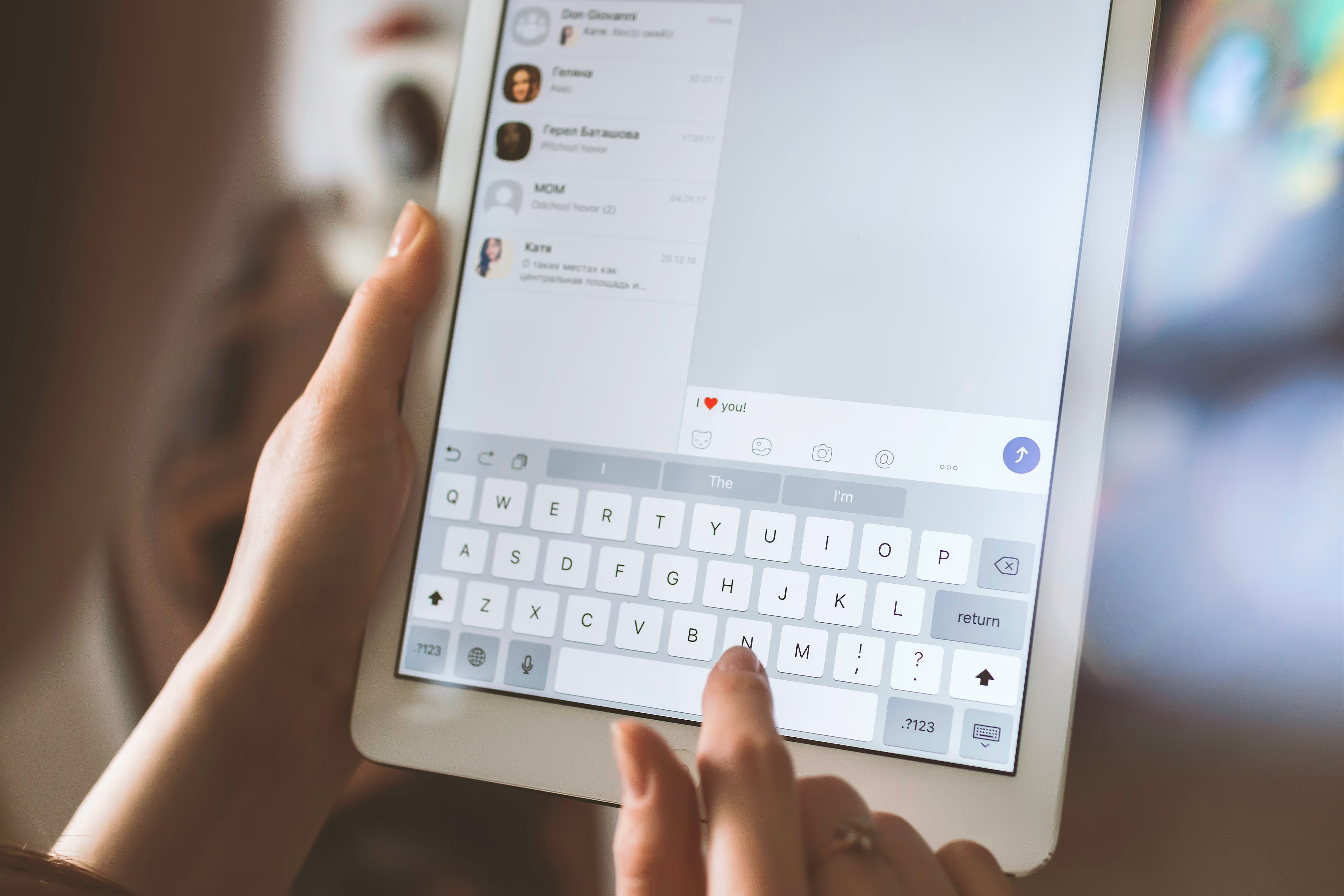Chatbot for Schedule appointments automatically and efficiently.
We develop conversational solutions that allow you to schedule appointments automatically, easily and connected to your management systems.

Benefits to automate the management of appointments via Whatsapp and other channels
24/7 availability
Your virtual assistant is always operational, allowing users to schedule at any time.
Reduction of cancellations and absences
The automatic sending of reminders and confirmations improves attendance and avoids wasted time.
No repetitive tasks for your team
Eliminate the operational burden of scheduling, rescheduling, or canceling manually. Everything is managed from the bot.
Adaptable to any channel
It works on WhatsApp, web, social networks or internal apps, and integrates with your calendar or CRM tools.
An agile and professional user experience
The user chooses the date and time in seconds, without calls or waiting. A frictionless reserve from any device.
Our methodology to create your chatbot to schedule appointments
We don't use generic templates: we understand how your business works, your attention flows and your objectives before we automate.
Needs and operational analysis
Defining personalized conversational flows
Integration with your tools and calendar
Development, Testing and Start-up
Monitoring, adjustments and continuous evolution
.jpg)

Why Choose us?
At Milmoh we don't work with prefabricated solutions. Our experience allows us to design chatbots to schedule appointments that fit the operational reality of each company. We are involved in understanding your processes, we adapt technology to your environment and we measure results to ensure impact. If you're looking for more than just a bot with predefined answers, we're your team.
Own technology powered by AI
Deep integration with your operations
Total alignment with your business logic
+200 automated systems implemented
Ongoing strategic advice
Frequently Asked Questions About Our AI Agents
A chatbot for scheduling appointments is an automated virtual assistant that guides the user to book, modify or cancel an appointment without human intervention. It can be deployed via WhatsApp, website, app or internal system, depending on your channels.
It works by connecting the availability logic (calendar, slots, resources) with a conversational flow that: requests data, offers options (date/time), confirms the reservation and triggers integrations (calendar, CRM). This lightens the operational burden, minimizes human errors, and allows your team to focus on what brings the most value.
Yes. This solution is especially useful in businesses that:
- They receive a significant volume of appointment or reservation requests.
- They manage multiple channels or resources (users, agents, locations, times).
- They seek to climb without multiplying personnel.
For medium-sized companies or established startups, a WhatsApp (or multichannel) appointment system provides efficiency, professionalism and improved customer experience. The important thing is that there is an already defined agenda process, even if it needs optimization.
- 24/7 service or after regular hours: you don't rely only on calls or forms.
- Reduction of repetitive tasks and coordination errors (double reservation, lack of confirmation).
- Improved attendance rate thanks to automatic reminders and confirmations.
- Improved customer experience: fast, integrated booking, without waiting.
- Scalability: supports peaks without the need to expand human staff.
- Data integration: all appointments are recorded, synchronized with your internal systems.
The process is based on our methodology: diagnosis → definition of flows → integration → development/testing → start-up → continuous optimization.
Time depends on variables: number of resources/channels, complexity of integrations (calendar, CRM, API), volume of languages, brand customization. In general, a time period between 4 and 12 weeks can be estimated for a moderately complex solution. During the diagnosis, a tighter time frame is defined.
Not necessarily to change, but to connect. The chatbot must be integrated with: calendar or scheduling system (e.g. Google Calendar, Calendly, own system), CRM or other tools for customer management, and communication channels (WhatsApp, webchat, app). In many cases, you work with existing APIs or you develop adapters. Our approach is to adapt to your infrastructure and not to give you a solution that requires drastic changes.
A key part of the design is to contemplate human scaling. If a user needs special attention (e.g. time change outside parameters, technical problem, complex question), the bot detects the case and transfers it to the human with the context of the conversation. This prevents the experience from being blocked or the user feeling neglected.
- We design clear, concise and thoughtful conversational flows for mobile and used channels.
- We conduct user tests before launch.
- We have incorporated automatic reminders and confirmations.
- We always give the option of “Human Agent” or “Talk to a person” if the user wishes.
- We measure key metrics (booking time, confirmed appointment rate, users who leave) and continuously optimize.
The costs depend on the scope (channels, integrations, customization, volume of resources). The important thing is to calculate the ROI by combining: saving time/hour of equipment, reduction of “no shows”, increased bookings thanks to expanded availability, improved conversions from appointment to sale. A good design allows the project to be amortized within a reasonable time thanks to improved efficiency + increased sales.
- The solution needs accurate availability/schedule data to work well. If the agenda is not systematized, the bot can generate errors.
- It does not replace the human team 100%: complex cases need intervention.
- If the reserve volume is very low, the impact may take time to be significant.
- It needs regular maintenance and review: businesses change, channels change too.
- If the conversational design is generic or poorly adapted to the channel, the experience will suffer
Some key metrics:
- Number of appointments scheduled through the bot vs. manual.
- Confirmation/attendance rate for scheduled appointments.
- Average booking time (from start of conversation to scheduled appointment).
- Percentage of users who start the flow but don't complete it (abandonment).
- Cost/hour saved by the human team.
- Evolution of sales or revenues derived from bookings generated by the bot.
- Feedback from users regarding ease of booking and channel used.
Yes, as long as the solution is designed from the start as a multichannel and multi-resource solution. A good chatbot for scheduling appointments is ready to:
- Operate on WhatsApp, webchat, app or social widgets.
- Manage multiple resources (rooms, employees, zones, branches).
- Show specific availability by resource/location.
- Adjust to different schedules or rules per resource.
This allows businesses with multiple locations or teams to use automation effectively.
The project doesn't end when you “start it”. We recommend:
- Periodic review of conversation logs to detect new patterns or flow errors.
- Adjustments to conversation flows (new resources, schedule changes, promotions).
- Monitoring and adjustment of performance metrics (drops in use, cessation rate).
- If the bot uses IA/NLP, update its linguistic database to adapt to new ways of asking.
We work under security and data protection standards (GDPR, in Europe) ensuring: data encryption, controlled access, responsible processing of personal data. In addition, by integrating with your internal systems, we define the appropriate permissions so that only what is necessary is synchronized. It is one of the aspects that we valued from the beginning of the project.




